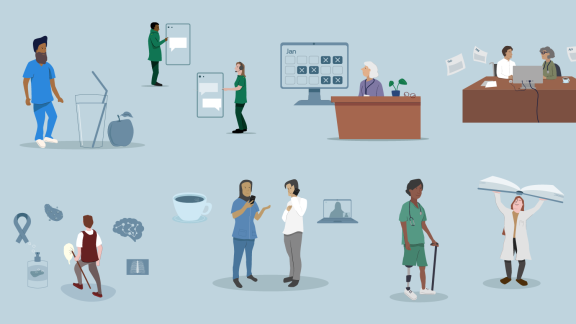Internships for staff with learning disabilities

Employment rates for people with a learning disability and/or autism have remained low for many years. NHS Employers supports the development of local and national solutions to remove barriers and increase employment opportunities for people with a learning disability and/or autism in the NHS.
Employing more people with a learning disability and/or autism helps NHS trusts to design services which serve and reflect their diverse patients, people and communities. There are not only benefits to the individuals but also for employers, including the savings associated with reduced employee turnover, accessing a bigger talent pool and nurturing an inclusive and accessible organisation.
The Department for Education is promoting the importance of supported internships as a route to employment across employment sectors. This includes their key initiative, launched in September 2022, Internship Works, which is a cross-sector programme that has been developed building on the experience of the NHS and its partners through the NHS Learning Disability Employment Programme (LDEP), including DFN Project SEARCH, the British Association for Supported Employment (Base) and The National Development Team for Inclusion (NDTi).
Recruiting staff through supported internships
Supported internships tend to be work-based study programme, where young people aged 16 to 24 spend the majority of their time based at an employer. Internships provide an important step into employment, helping young people gather the skills and experience they need to secure a job.
There are a range of supported internship programmes being delivered by NHS organisations and partners across the health system. Some organisations have their own schemes, however, the majority of NHS organisations work with one of the two main national providers, Choices College (formerly Health Education England’s Project Choice) and DFN Project SEARCH. Both offer a wealth of experience of working with NHS organisations and provide an infrastructure which supports NHS organisations and individuals.
Choice’s College continues to provide tailored educational support and a supported internship course for young adults aged 16-24 with learning difficulties and/or disabilities, and/or autism.
In the past two years, over 120 interns secured employment through NHS England’s partnership with DFN Project Search.
Across the UK, DFN Project SEARCH has supported over 2,600 young adults with a learning disability or autism spectrum condition or both into work, and over a quarter of those found employment in the NHS.



